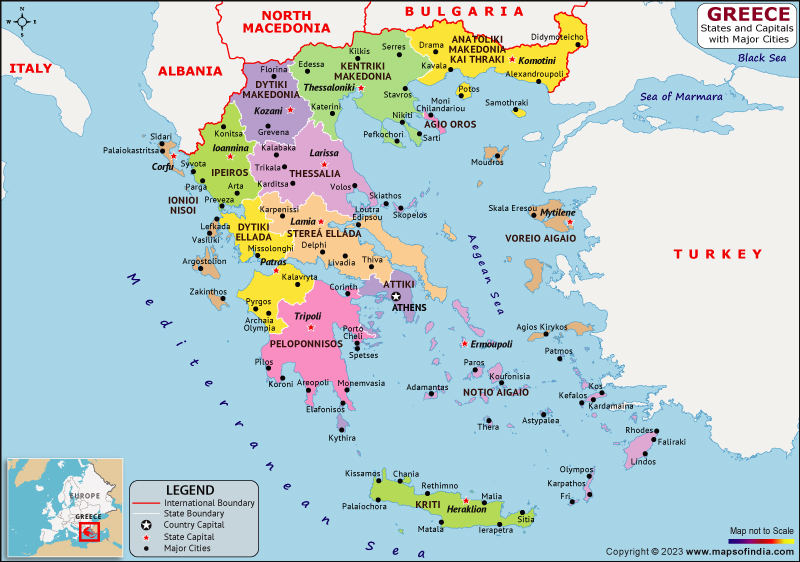Greece is a country located in Southeast Europe, known for its ancient history, beautiful islands, and Mediterranean cuisine. Its capital is Athens, one of the oldest cities in the world and home to iconic landmarks such as the Acropolis and the Parthenon. Greece covers an area of approximately 131,957 square kilometers and has a population of around 10,286,453 people.
History:
Almost 4,000 years of intriguing history can be found in Greece. Given its great contributions to philosophy, democracy, literature, art, and science, it is regarded as the birthplace of Western civilization. Athens, Sparta, Corinth, and Thebes were just a few of the city-states that made up ancient Greece, each with its own political system and way of life. Athens enjoyed a golden age in the fifth century BCE, which was characterized by the creation of famous structures like the Parthenon and important developments in philosophy, theater, and democracy. The Hellenistic era was brought about by the spread of Greek civilization through Alexander the Great's conquests. Afterwards, Greece was ruled by the Romans and incorporated into the Byzantine Empire. Greece formed a modern state and separated itself from the Ottoman Empire in the 19th century.
Culture:
Greek culture is broad and rich, with a long, illustrious past. Greece is renowned for its philosophical, literary, artistic, and scientific contributions, as well as for its historical mythology and famous sites like the Acropolis and the Parthenon. Greek tradition places a high value on family, religion, and hospitality. Greek food is extremely well-known throughout the world, and popular classics include moussaka, souvlaki, and tzatziki. Greek culture also values music and dance, with weddings and other occasions featuring performances of classic dances like the syrtaki and the zeibekiko. Greek Orthodox Christianity is the country's main religion.
Language:
The official language of Greece is Greek, which belongs to the Hellenic branch of the Indo-European language family. Modern Greek has evolved from the ancient language, with changes in vocabulary, grammar, and pronunciation. Standard Greek is based on the dialect of Athens, and there are also several regional dialects spoken throughout the country.
Geography:
The Aegean Sea, the Ionian Sea, and the Mediterranean Sea all encircle the nation to the east, west, and south, respectively. With more than 2,000 islands and islets spanning the Aegean and Ionian Seas, Greece is renowned for its breathtaking islands. The country's highest peak, Mount Olympus, as well as other mountain ranges including the Pindus Mountains and other mountain ranges may be found on the mainland. Greece experiences a typical Mediterranean climate with warm, dry summers and cool, rainy winters. The nation is also vulnerable to earthquakes, which have caused numerous catastrophic quakes throughout its history.
| Official Name | Hellenic Republic |
| Capital | Athens |
| Population | 10286453 |
| Area | 131,957 km2 |
| Currency | Euro (EUR) |
| Religion | Christianity |
| Language | Greek |
| Major Cities | Thessaloniki, Patras |
FAQs
Q1: What is the climate like in Greece?
The climate in Greece is typically Mediterranean, with hot and dry summers and mild and rainy winters.
Q2: What is the capital of Greece?
Athens is the capital of Greece.
Q3: What is the currency of Greece?
Greece’s currency is the Euro (EUR).
Q4: Which is the largest city in Greece?
Athens is the largest city in Greece.
Last Updated on: July 09, 2025
